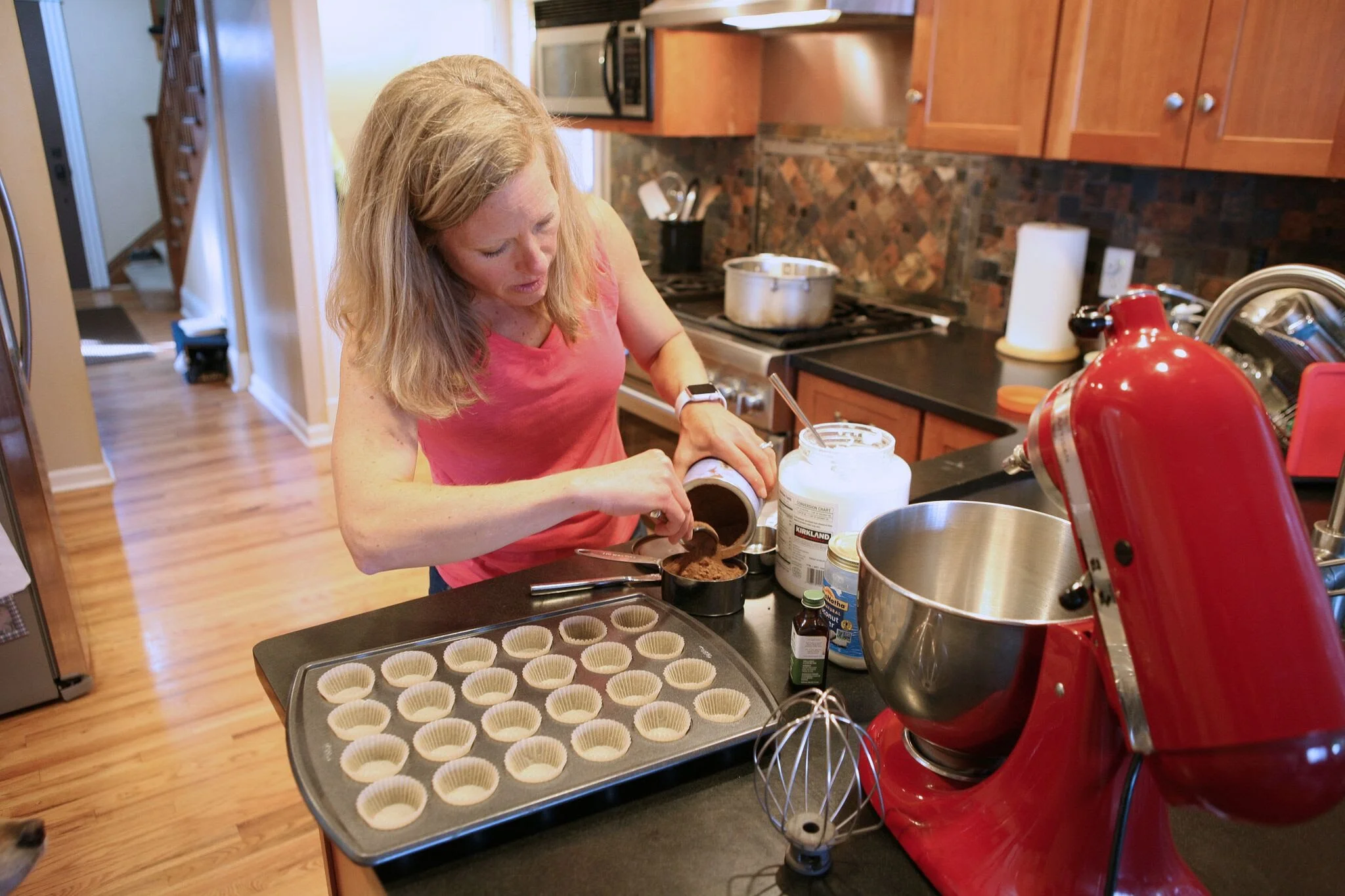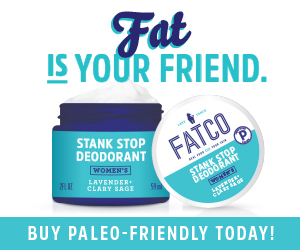Cholesterol
/Halfway through the Primal Health Coaching Course I reached the “Fat & Cholesterol Are Not Your Enemy” module. “Ugh” I thought. “Boring” and “Who Cares” also came to mind. Then I met up with a friend and fellow small business owner. We traded horror stories about work. Between us, there was a lot of stress and a lot to cry about. But it wasn’t until my friend started talking about her health that she teared up. Her cholesterol was through the roof. My ears perked up. This ‘boring’ module was now pertinent. And it wasn't just my one friend. The more people I asked, the more people I found out had cholesterol issues, and many of them were on statins. But the recommendations they were receiving from their doctors was not what I had been learning. What gives?
First of all, let’s set the record straight. Cholesterol is not inherently a bad thing.
Cholesterol is critical to maintaining cell membranes, producing bile that helps digest fat, metabolizing fat-soluable vitamins, and synthesizing many hormones. Your body recognizes that cholesterol is such an important molecule, that if you ate NO cholesterol at all, your body would still produce it. Your body makes cholesterol to respond to inflammation in the body. The problem is, people are trying to reduce their cholesterol without addressing the inflammation that caused it.
Conventional, flawed wisdom has long linked cholesterol to heart disease. However, the tide is turning on the demonization of cholesterol (remember the Time Magazine featuring eggs on the cover stating “Cholesterol…And Now The Good News”?). It is finally being acknowledged that oxidation and inflammation in the bloodstream are the true risk factors of heart disease.
The actual heart disease process looks like this: You eat too many processed carbohydrates (grains and sugars) and so your body produces an excess of insulin and high triglycerides in the bloodstream. You are also consuming oxidized polyunsaturated oils (canola oil, vegetable oil, etc) and are living a stressed-out life (not getting enough sleep, chronically exercising, not exercising enough, not getting enough sun, etc). These dietary and lifestyle habits of ours are promoting a state of oxidation and inflammation in our bloodstream. With all of this is going on in our bodies, cholesterol can turn dangerous as small, dense LDL molecules lodge on the artery walls and sustain oxidative damage. Your body’s immune system is then triggered, creating more inflammation, plaque on the walls of your arteries and eventually a heart attack or stroke.
Diane Sanfillipo, author and certified holistic nutritionist, has a great video about cholesterol that helps explain things in a simple fashion. Diane uses the analogy that taking statins or fish oil to lower cholesterol is like taking a hose to a house on fire. Only, inside the house, there is a party going on and everyone keeps lighting matches. From the outside, it may look like the fire is getting under control, but everyone is still lighting matches inside. The point being, that you have to lower inflammation. The cholesterol is there to respond to the inflammation.
Let’s pause a moment to talk about statins. Statins reduce your overall cholesterol level. The problem is, statins don’t discriminate between “good” cholesterol (HDL) and “bad” cholesterol (small, dense LDL), it just lowers ALL cholesterol. And just because you have a lower LDL cholesterol level, doesn’t mean you are safe from heart attacks. In fact, 75% of people who have had heart attacks, have had “safe” LDL cholesterol levels. Statins do not decrease risk of death in ANY women, in men over 65 or in men under 65 who have not had a heart attack. Statins have only been proven beneficial for men who have previously had a heart attack. If you are still wondering why you may want to reconsider taking statins, here are some pretty good reasons, in my opinion:
- Statins can interfere with a healthy serotonin balance, which can cause mood disturbances.
- Statins can hamper Vitamin D synthesis, which is a huge cancer risk factor.
- Statins can cause disturbances in blood sugar regulation and other hormone processes.
- Statins can cause disturbances in controlling inflammation.
If you do take statins you MUST take CoQ10 in order to avoid fatigue and muscle pain and ensure proper brain function!
Now that you, perhaps, know a little more about why cholesterol is necessary and why statins are not, what are you supposed to do?
I’m sure my friend would admit that stress is causing her some inflammation. Other reasons for inflammation are alcohol consumption, excess sugar and highly processed carbohydrates and not enough activity for the amount of carbohydrates that one is consuming. Here are some tips to get you started:
- Cook with saturated and monounsaturated oils (coconut oil, avocado oil, olive oil, ghee) and avoid polyunsaturated oils (vegetable oil, canola oil, sunflower oil, soybean oil, etc). Avoid trans or partially hydrogenated fats which is often found in packaged snacks, baked goods, fried foods, refrigerated dough, creamers and margarine.
- Avoid alcohol, processed carbohydrates and sugars. Eating a lower carbohydrate diet is a great idea (aim for under 150 grams/day). Include nutrient dense carbohydrates, like sweet potatoes, in your diet to avoid your thyroid from becoming sluggish.
- Get outside! While sun exposure ensures the highest levels of Vitamin D, supplementing in the winter months can be effective as well.
- Ensure sufficient levels of anti-oxidants (check out this list) and saturated fats. Saturated fats help elevate your HDL levels and make LDL particles resistant to oxidation. One way to get a daily dose of saturated fats is through “fat bombs” which are snacks that are high in fat and low in carbs. They are super satiating too, especially my all-time favorite recipe – Diane Sanfilippo’s Almond Butter Cups. Make sure not to eat a high fat diet while still eating a high carbohydrate diet though. That will guarantee weight gain! And don’t sacrifice nutrient rich foods in favor of satiating fat. You still need your veggies!
- Testing your total LDL level is almost pointless. Better blood tests to track your heart disease risk are triglyceride-to-HDL ratio (divide your total triglyceride by your HDL, if it is over 3, lifestyle changes are in order), blood pressure, Vitamin D, HbA1C, fasted glucose, LDL particle count, inflammation markers like C-reactive protein, homocysteine, and CPK; and calcium scans (there are places like The South Denver Heart Center which offer these scans for only $99!).
- A triglyceride reading of under 100 mg/L is great, while under 150 is essential to reducing disease risk.
- While you want triglyceride number to be low, you want your HDL number to be high. Ideally, aim for a 1:1 ratio, with triglycerides and HDL being around 100.
- If your LDL levels are over 200, even after you’ve made dietary and lifestyle changes, get tested and treated for hypothyroidism.
- Figure out a way to unwind! Meditate, do yoga, take long walks in nature
Changes, especially when it comes to food, are not easy to make. Unfortunately, what we’ve been told (“just take this pill and things will be fine”) doesn’t cut it when it comes to disease. If we want to lower our risk of disease and make sure we’re around for a long time, changes are imperative. Start slowly if you need to. Take the Primal Blueprint 21-Day Challenge:
- Eat Real Food
- Avoid sugar, grains, unhealthy fats, beans/legumes
- Align your carb intake with your weight goals and activity levels
- Move frequently at a slow pace: Get between 2-5 hours per week of moderate aerobic exercise
- Lift heavy things: Conduct 1-3 brief, intense sessions of full-body functional movements
- Sprint: Go “all out” once a week
- Get 8 hours of sleep every night
- Get 15 minutes of direct sun exposure each day
- Play! Find time to disconnect, let go, unwind and have fun each day
It may be hard, but I guarantee you’ll feel better and hope. Need more inspiration and ideas? Here are some helpful and inspirational resources:
Clearing Up Cholesterol Confusion - Diane Sanfillipo
The Definitive Guide To Cholesterol - Mark’s Daily Apple
Learn Exactly What To Do (Or Not Do) About High Cholesterol – Chris Kresser
* Remember, I am not a doctor! This information is primarily from what I have learned from the Primal Blueprint Health Coaching Class and research. My intention is to give you some tips to get you started on your journey to a more disease free life. Please do NOT go against the advice of your doctor. DO educate yourself, and perhaps even your doctor, and know that there are alternatives to achieve your goals.












